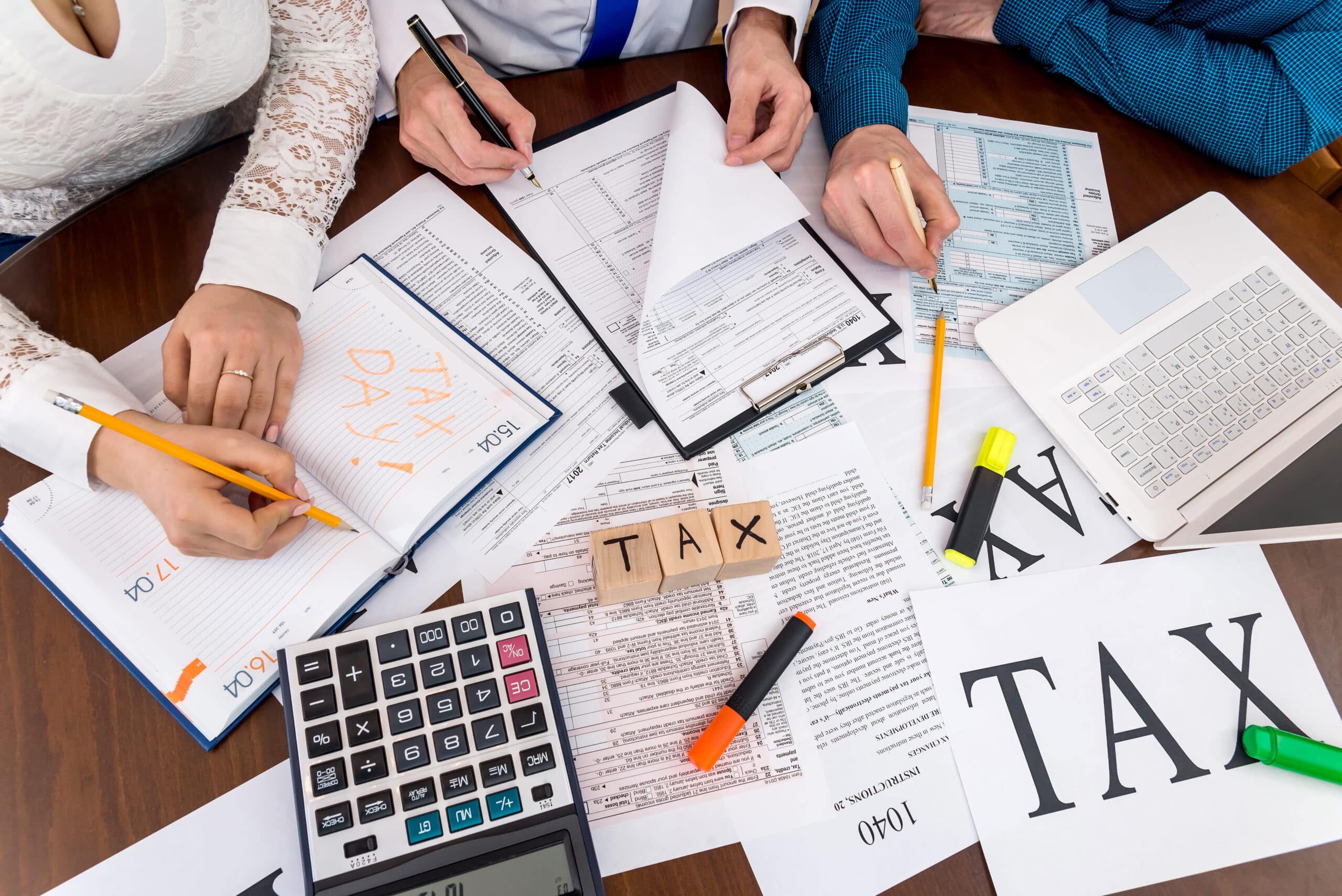Have you pondered about your favourite bars and nightclubs’ taxes? These sites are enjoyable and provide additional activities. However, they offer a bustling nightlife and pleasure, with severe tax restrictions.
This guide will cover the essential taxes and why these firms must comprehend them. Learn how to handle taxes for your bar or nightclub with this straightforward Bars and Night club Taxes Guide. Let’s explore a nighttime aspect you may have yet to consider.
Importance of Bars and Night Club Tax
Clubs and bars must understand tax rules and financial management to survive and succeed. Avoiding tax rules can lead bars and nightclubs to face hefty penalties, fees, or even closure.
Because of this, owners and managers must comprehend tax regulations and their impacts. We’ll cover sales taxes, payroll taxes, excise taxes, and entertainment taxes in this guide. Bar and nightclub proprietors require knowledge and skills to navigate the complex tax system.
Understanding Taxes in the Bar and Nightclub Industry
Unique Tax Implications
Bars, clubs, and other help establishments are different. Remember that these particular factors likewise altogether influence tax commitments. Bars and clubs handle huge money, making recordkeeping and charge divulgence risky. Organisations should keep up with appropriate records and report tips to the taxation authorities when customers depart. Understand their firms’ tax outcomes to get ready for lawful difficulties and diminish risk as club and bar owners.
IRS Classification
Understanding IRS tax rules for bars is essential for complying with tax laws. The IRS has tax requirements for nightclubs, bars, and other “food and beverage establishments”. Nightclub and bar proprietors may comply with federal tax laws by following IRS rules.
Types of Taxes for Bars and Nightclubs

Sales tax
Pubs and events venues must consider sales tax rates since it impacts many transactions. Sales tax applies to purchases, debt repayment, and alcohol sales. Since sales tax levels and regulations vary by state, sales tax laws are more accessible to follow. Nightclub and bar owners can calculate and pay their sales tax duties if they comprehend the complicated and broad tax regulations.
Payroll Taxes
Government payroll taxes subject workers’ paychecks to various levies. Because of this, they pay a disproportionate share of hospitality taxes. Nightclubs and bars must deal with FICA, Social Security, and tipping. Keep track of tip money, appropriately categorise workers, and pay taxes legally to avoid payroll tax penalties.

Excise Tax
Nightclubs and bars must pay alcohol excise taxes to comply with the law. The Alcohol and Tobacco Tax and Trade Bureau collect US wine, beer, and spirits taxes. Some nations require companies and individuals to pay alcoholic beverage import taxes. Bar and nightclub owners and operators should know their excise tax rates and legislation. This may decrease their tax payments and keep them compliant.
Entertainment and Amusement Tax
Theatre and entertainment taxes are expected for restaurants and pubs presenting live shows. These fees fund most entertainment event expenditures, including ticket sales and other profits. Maintaining compliance with entertainment regulations involves diligent recordkeeping and precise taxpayer money reporting. Bar and nightclub operators should also know about entertainment tax advantages and credits.
Compliance Requirements
Accurate Record Keeping
Bar and party hosts must maintain proper records to comply with tax laws and provide correct financial reports. Due to the high cash transactions and frequent tipping, these establishments must maintain tight records of their revenue, costs, and staff compensation. Professional accounting software and sound internal controls may speed up record-keeping. This reduces errors and arguments.
Payroll Compliance
Bars must adhere to payroll tax requirements to prevent penalties and legal complications. To achieve this, you must accurately identify workers, calculate their salary and extras, and ensure they follow tax collection guidelines. You must follow tip reporting guidelines to report the proper amount of money and satisfy federal and state tax requirements.
State-Specific Regulations
Pub and nightclub proprietors must obey federal and state tax laws. These restrictions vary by location. There are restrictions governing state sales tax rates and deductions, alcohol excise, and entertainment and leisure taxes. Fines, penalties, and other legal repercussions may result from violating another state’s tax laws. Bar and nightclub operators must understand their state’s tax laws and fulfil all business-related restrictions.
Tax Deductions and Credits

Common Deductions
Bar and nightclub owners might get tax benefits to reduce their taxable revenue and taxes. Rent, energy, labour, products, advertising, and insurance are regular withdrawals. Insurance expenses are one. Fixed expenses like furniture, furnishings, and tools that depreciate and amortise can be tax deductible.
Employee Retention Credit

Businesses can claim the Employee Retention Credit (ERC) tax credit under specific circumstances. This benefit goes to companies that retained personnel during severe economic periods like the COVID-19 pandemic. Bars and nightclubs can qualify for the Energy Recovery Credit (ERC) if their sales have plummeted or the government has shut them down or limited their operations. This also allows these organisations to provide monetary assistance to employees in difficult times.
Industry-Specific Tax Credits
Bars and nightclubs can earn regular and industry-specific tax credits that reduce their taxes significantly. The Work Opportunity Tax Credit (WOTC) pays companies to recruit veterans and disabled individuals to create new jobs. The Empowerment Zone Employment Credit (EZEC), comparable to the EZEC, gives tax advantages to firms that employ individuals from empowerment zones. These tax credits assist bar and nightclub owners in cutting their taxes while growing their cities’ economies and educating their employees.
Avoiding Common Tax Pitfalls
Misreporting Income
Bar and nightclub operators that misrepresent their revenues may face significant fines and legal difficulties. Many individuals falsely claim money from typical sources. These include unreported cash dealings, underreported tip money, and inaccurate sales revenue records. Bar and nightclub operators must create stringent financial standards, keep accurate records of all transactions, and meet IRS earnings reporting laws.
Incorrect Tip Reporting
Bar and nightclub operators must maintain accurate tip records to comply with IRS laws and avoid penalties. Records and reports all worker tips. Cash, credit, or tip-sharing are options. Tipping workers must get the minimum wage plus tips, and employers must fulfil tip report recordkeeping regulations. Managers must ensure tipping. Setting clear standards and processes, educating personnel on tip reporting, and performing frequent audits can reduce the risk of inaccurate tip reporting and tax fines for bar and nightclub operators.

Payroll Errors
Paying correctly can be beneficial for bar and nightclub owners and management. Misclassifying workers as independent contractors, not withholding enough taxes, and underpaying workers are frequent salary blunders. Bar and nightclub owners must classify their employees according to IRS rules, correctly calculate their salaries and deductions, and stay abreast of payroll tax changes.
Hiring a Tax Professional
When to Seek Professional Help
Bar and nightclub operators must know when to seek expert aid with complex tax difficulties. You can manage specific tax concerns independently but sometimes require a hotel tax professional. Examples include tax planning and strategy, IRS audits and investigations, and complex tax compliance issues. A tax lawyer with extensive tax knowledge may help bar and nightclub operators relax and feel secure in their business abilities.
What to Look For
To choose the correct tax professional, bar and nightclub operators must consider many factors. Consider the advisor’s qualifications, expertise, and understanding of the hotel industry. The advisor’s identity, track record, and customer referrals are also crucial. Bar and nightclub owners should also evaluate the counsellor’s communication, promptness, and openness to ensure teamwork and rapid financial resolution.
Conclusion
Learning about taxes, following regulatory bodies’ laws, and employing deductions and credits may cut bar and nightclub owners’ tax costs and increase their revenue.
To decrease risks and assure long-term success in the fast-paced hotel sector, acquire expert aid when required and remain current on tax law changes. Bar and nightclub entrepreneurs can develop and succeed by preparing and complying with taxes.
.
Read more























